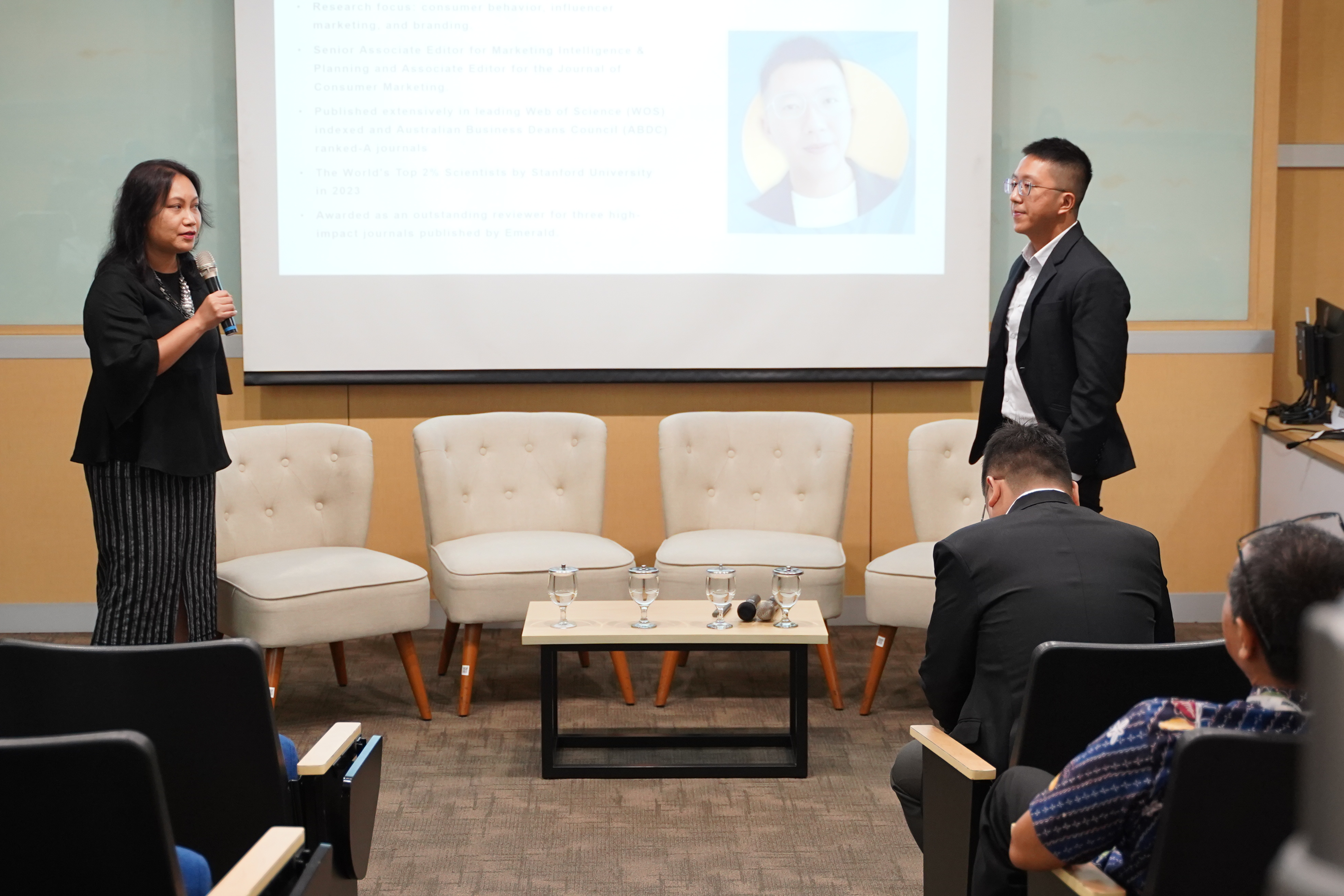Behind the Scenes: What Reviewers Really Want – Key Insights from Assoc. Prof. Dr. Eugene Aw Cheng Xi

The second speaker of the Research Talk held by BINUS Business School is Assoc. Prof. Dr. Eugene Aw Cheng Xi from UCSI Graduate Business School. Assoc. Prof. Dr. Eugene Aw Cheng Xi, who is a distinguished scholar in marketing, provides invaluable insights into the peer review process in academic publishing, presented a topic titled “Behind the Scenes: Understanding What Reviewers Really Want.”
The Role of Peer Review
Dr. Eugene underscores the importance of peer review as a mechanism to ensure the reliability and credibility of academic publications. Despite its flaws, it remains a critical pillar in maintaining the quality and integrity of research. He stresses that peer review is not only about validating research but also about establishing trust among academic communities. Authors, therefore, should take the process seriously and view it as an opportunity to refine their work.

What Reviewers Expect
According to Dr. Eugene, one of the common reasons for rejection is that submissions often fall outside the journal’s scope. He advises authors to carefully read journal guidelines and understand what each journal prioritizes in terms of topics and formatting. Furthermore, he emphasizes that originality and the ability to contribute new theoretical insights are key factors that reviewers look for. To meet reviewers’ expectations, researchers should communicate their contributions clearly and highlight the novelty of their work. Dr. Eugene explains that applying a theory to a new context is the most common approach but is often less impactful than extending a theory, which provides fresh insights or alternative perspectives.
Originality and Theoretical Contribution
Dr. Eugene encourages researchers to go beyond surface-level contributions and offer deeper theoretical extensions or new perspectives in their field of study. He emphasizes that merely combining theories without adding substantial value often falls short of the mark. Instead, he urges scholars to frame their research gaps strategically, focusing on the significance and relevance of their contributions. For example, in the realm of celebrity endorsements, Dr. Eugene suggests that researchers could frame their studies in terms of how endorsements protect brand image during crises, offering a fresh angle on the subject.

The Importance of Quality Journals and Literature Reviews
Citing reputable, high-ranking journals is another crucial factor. Dr. Eugene advises that papers listed in the ABDC ranking or Academic Journal Guide (ABS) enhance the credibility of the research. A thorough literature review that synthesizes existing studies and provides original insights is far more impactful than one that simply lists previous work. In discussing hypotheses, Dr. Eugene warns against making claims that are too easy to prove, as this often suggests that the hypothesis has already been extensively researched. Instead, researchers should aim for complexity in their hypotheses and build strong relationships between concepts.
Addressing Reviewers’ Comments
Dr. Eugene highlights the importance of addressing reviewers’ comments thoughtfully and thoroughly. Simply providing superficial responses can lead to rejections. He suggests responding point-by-point, addressing each concern in detail, and ensuring that revisions are comprehensive. He also emphasizes the importance of remaining humble, open to feedback, and seeing revisions as an opportunity to improve the work.
Methods and Communication in Research
Finally, Professor Dr. Eugene discusses the importance of combining empirical evidence with strong theoretical reasoning. He suggests using a range of complementary methods, staying up-to-date with evolving research techniques, and focusing on advanced analysis. He reminds authors that clear, effective communication and strict adherence to journal guidelines are essential to success in the academic publishing world. Failing to follow these guidelines could result in rejection or even blacklisting from future submissions.

In summary, Professor Eugene Changi’s insights highlight the importance of originality, theoretical contribution, and rigorous adherence to journal guidelines when submitting academic articles for review. By focusing on these elements and treating the peer review process as a constructive opportunity, researchers can greatly enhance the quality and impact of their work.

